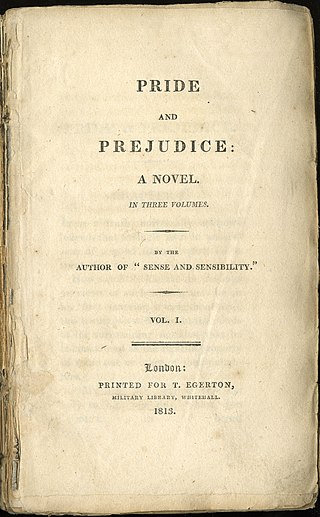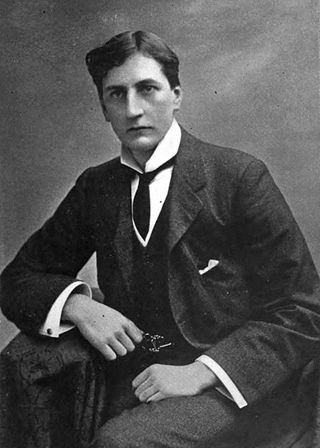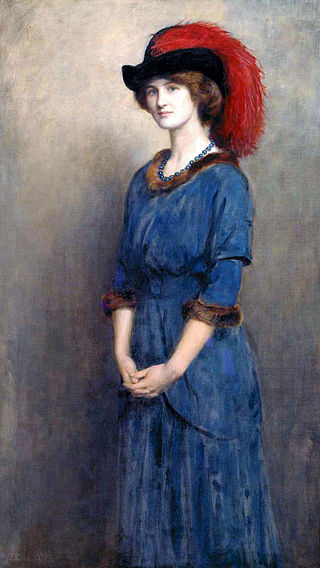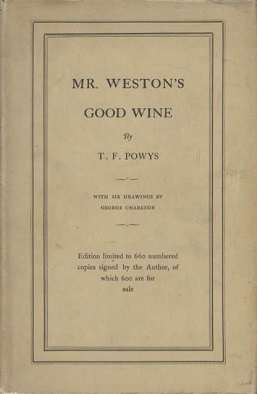
Jane Austen was an English novelist known primarily for her six novels, which implicitly interpret, critique, and comment upon the British landed gentry at the end of the 18th century. Austen's plots often explore the dependence of women on marriage for the pursuit of favourable social standing and economic security. Her works are an implicit critique of the novels of sensibility of the second half of the 18th century and are part of the transition to 19th-century literary realism. Her deft use of social commentary, realism and biting irony have earned her acclaim among critics and scholars.

Pride and Prejudice is the second novel by English author Jane Austen, published in 1813. A novel of manners, it follows the character development of Elizabeth Bennet, the protagonist of the book, who learns about the repercussions of hasty judgments and comes to appreciate the difference between superficial goodness and actual goodness.

Emma is a novel written by English author Jane Austen. It is set in the fictional country village of Highbury and the surrounding estates of Hartfield, Randalls and Donwell Abbey, and involves the relationships among people from a small number of families. The novel was first published in December 1815, although the title page is dated 1816. As in her other novels, Austen explores the concerns and difficulties of genteel women living in Georgian–Regency England. Emma is a comedy of manners.

Persuasion is the last novel completed by the English author Jane Austen. It was published on 20 December 1817, along with Northanger Abbey, six months after her death, although the title page is dated 1818.

The Vicar of Wakefield, subtitled A Tale, Supposed to be written by Himself, is a novel by Anglo-Irish writer Oliver Goldsmith (1728–1774). It was written from 1761 to 1762 and published in 1766. It was one of the most popular and widely read 18th-century novels among Victorians.

Alfred Edward Woodley Mason was an English author and Liberal Party Member of Parliament. He is best remembered for his 1902 novel of courage and cowardice in wartime, The Four Feathers, and is also known as the creator of Inspector Hanaud, a French detective who was an early template for Agatha Christie's famous Hercule Poirot.

Irene Handl was a British character actress who appeared in more than 100 British films; she also wrote some novels.

Taken at the Flood is a work of detective fiction by British writer Agatha Christie, first published in the US by Dodd, Mead and Company in March 1948 under the title of There is a Tide. .. and in the UK by the Collins Crime Club in the November of the same year under Christie's original title. The US edition retailed at $2.50 and the UK edition at eight shillings and sixpence (8/6). It features her famous Belgian detective, Hercule Poirot, and is set in 1946.

Annie Walker is a long-standing fictional character in the ITV soap opera Coronation Street. She was played by actress Doris Speed from the series' first episode in 1960 until Speed retired from the role 23 years and 1,726 episodes later in 1983. Speed appeared as a guest of honour at the 30th birthday celebration of Coronation Street in 1990 which was hosted by Cilla Black.
"Born to Run" is the 22nd episode of the first season of Lost. It was directed by Tucker Gates, written by Edward Kitsis and Adam Horowitz, and based on a story by Javier Grillo-Marxuach. It first aired on May 11, 2005, on ABC. The character Kate Austen is featured in the episode's flashbacks. The title Born to Run is an allusion to the Bruce Springsteen song and album of the same names.
Love and Freindship [sic] is a juvenile story by Jane Austen, dated 1790. While aged 11–18, Austen wrote her tales in three notebooks. These still exist, one in the Bodleian Library and the other two in the British Museum. They contain, among other works, Love and Friendship, written when she was 14, and The History of England, written at 15.

Angela Margaret Thirkell was an English and Australian novelist. She also published one novel, Trooper to Southern Cross, under the pseudonym Leslie Parker.

The reception history of Jane Austen follows a path from modest fame to wild popularity. Jane Austen (1775–1817), the author of such works as Pride and Prejudice (1813) and Emma (1815), has become one of the best-known and most widely read novelists in the English language. Her novels are the subject of intense scholarly study and the centre of a diverse fan culture.

Five Days One Summer is a 1982 American romantic drama film directed and produced by Fred Zinnemann from a screenplay by Michael Austin, based on the 1929 short story Maiden, Maiden by Kay Boyle. Set primarily in the Alps, the story focuses on Douglas Meredith and his lover Kate as they embark on a mountain climbing trip, which unravels their relationship due to Kate's feelings for their mountain guide as well as a dark secret that looms over the couple.
At the Villa Rose is a 1920 British silent detective film based on the 1910 novel At the Villa Rose by British politician and author A.E.W. Mason. The feature was directed by Maurice Elvey and stars Manora Thew and Langhorn Burton. A print of the film survives at the British Film Institute archives.
A Romance of Wastdale is a 1921 British silent adventure film directed by Maurice Elvey and starring Milton Rosmer, Valya Venitskaya and Fred Raynham. It was based on the 1895 novel of the same name by A. E. W. Mason.
Nicholas Nickleby is a 1912 American silent short drama film directed by George Nichols, adapted from Charles Dickens' 1839 novel of the same name. The two-reel film stars Harry Benham in the title role and Mignon Anderson.

Mr. Weston's Good Wine is a novel by T. F. Powys, first published in 1927.
Catharine, or the Bower is an unfinished novel from Jane Austen's juvenilia. With its realistic setting and characters, it represents something of a bridge between her early burlesques and the soberer novels that made her name.

The Courtship of Morrice Buckler is an 1896 novel by the English author AEW Mason. It bears the subtitle A Romance : Being a Record of the Growth of an English Gentleman during the years 1685–1687, under strange and difficult circumstances / written some while afterwards in his own hand, and now edited by / A.E.W. Mason.













